Nibali’s Tour de France hopes fade at La Pierre-Saint-Martin
Vinokourov: 'We’re not going to win the Tour'
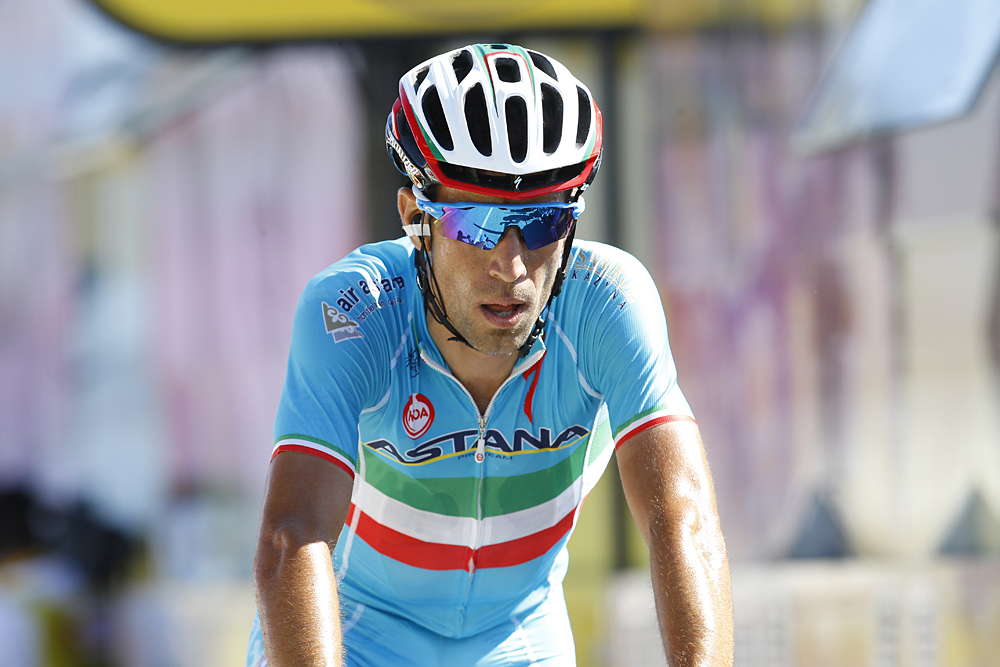
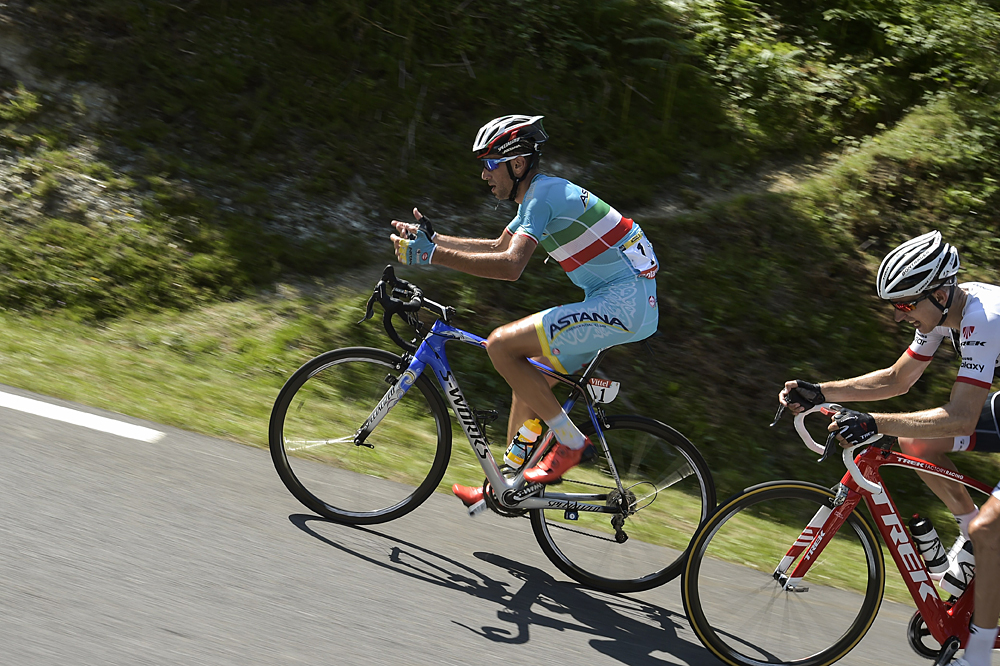
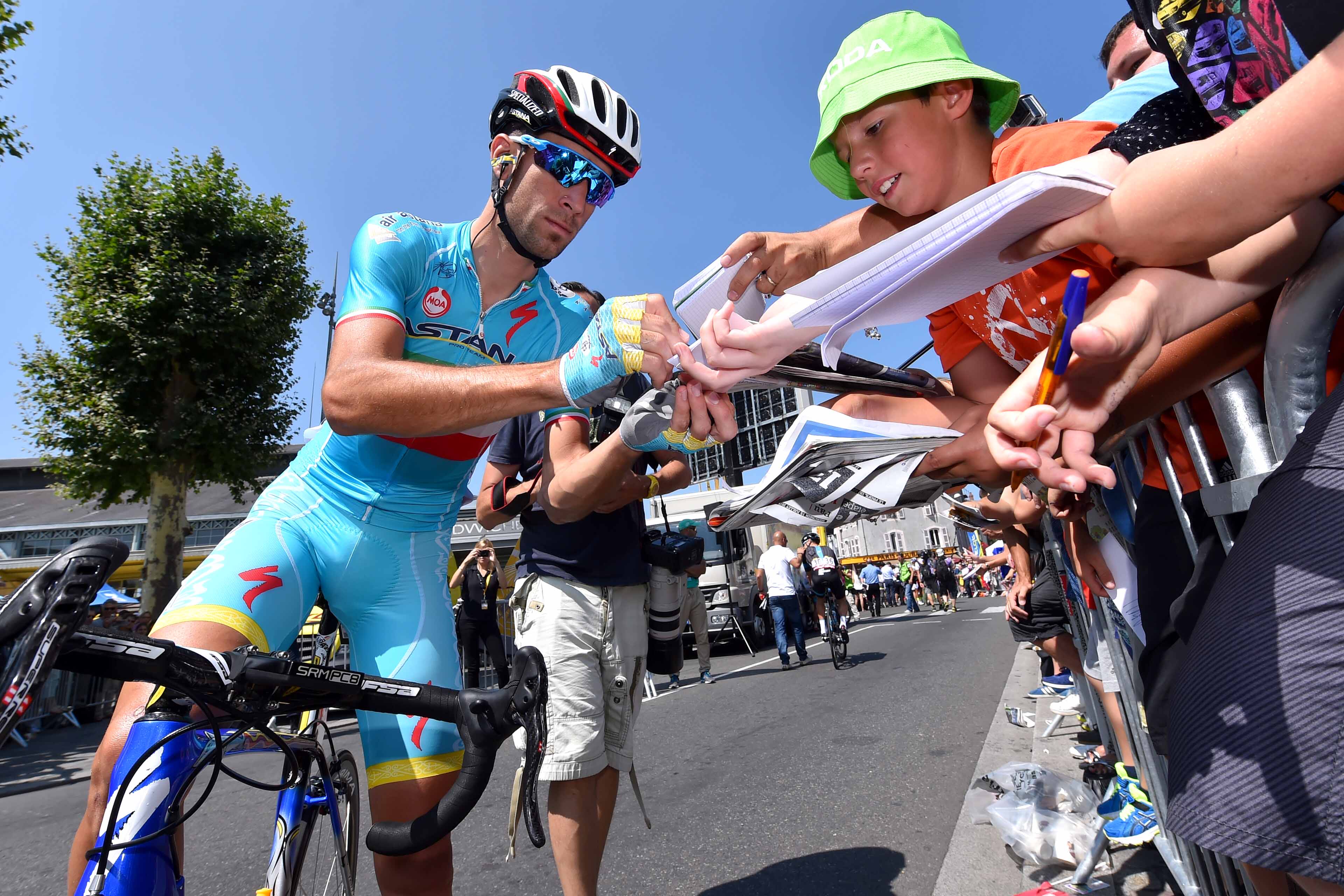
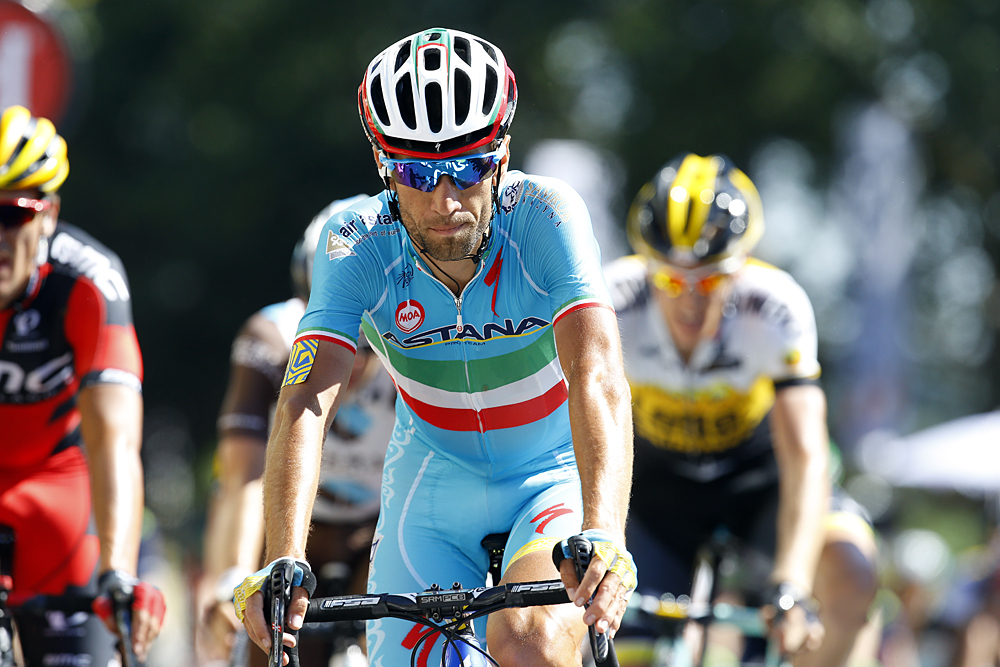
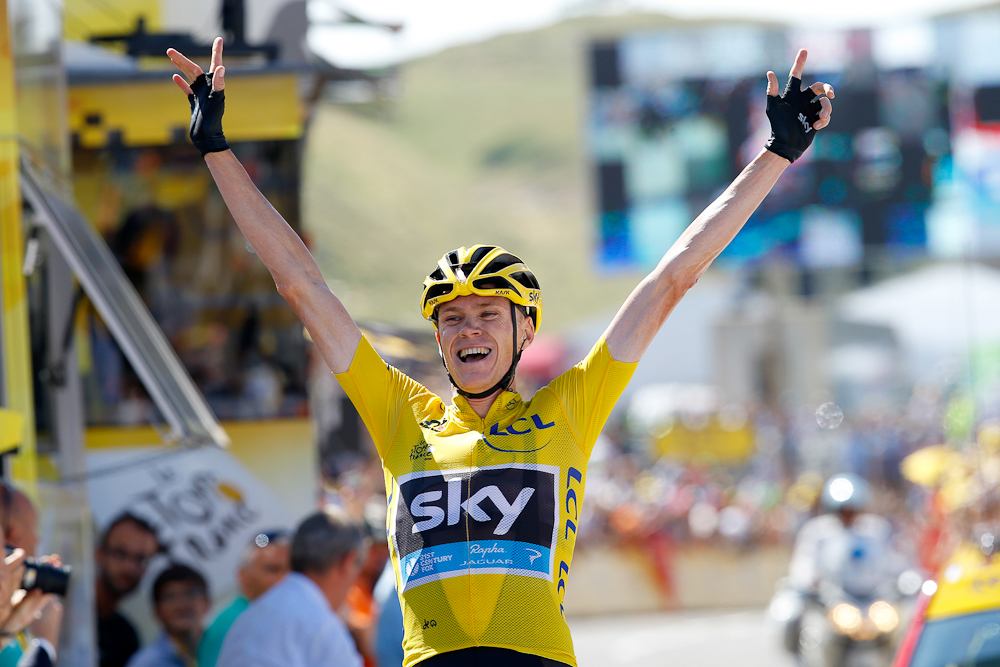
As the post-mortem began outside the Astana team bus, general manager Alexandre Vinokourov’s voice was so low that it was barely picked up by the microphones dangling two inches from his face. Then again, he was scarcely more audible when feting victory on the Champs-Élysées a year ago. A man who treats triumph and disaster just the same; Kipling would approve.
Tour de France: Froome crushes competition in first major summit finish
Tour de France stage 10 quotes: Froome extends overall lead in La Pierre-Saint-Martin
Tour de France podcast episode 12: The Froome-inator
Jakob Fuglsang to lead Astana at Tour de France after Nibali cracks
Vinokourov denies he told Nibali to find a new team next year
Nibali says Vinokourov’s comments were designed to motivate
Tour de France: Nibali eyes top-five finish as recovery continues
“It’s sure that we’re not going to win the Tour de France this year,” Vinokourov said, his soft voice in keeping with the sombre tone around him after stage 10 to the summit of La Pierre-Saint-Martin. While Vincenzo Nibali showered aboard the Astana team bus after losing 4:25 to Chris Froome and all hopes of a second successive Tour win, the search for the black box was already underway.
“I don’t want anyone to think that Vincenzo came to Tour without being in good condition,” directeur sportif Giuseppe Martinelli told another group of reporters. “That’s not the case, because otherwise there wouldn’t be so many other riders in the same position. We saw some important collapses today: [Alberto] Contador, [Joaquim] Rodriguez and many others. And I wouldn’t think they’ve come to the Tour badly prepared either.”
After a trying first week, Nibali arrived at the first Pyrenean stage of this Tour with a metaphorical mountain of his own to climb in addition to the 15km haul to La Pierre-Saint-Martin. Already 2:22 down on Froome as the day began, Nibali’s chances were dwindling even before Movistar began their forcing at the base of the climb.
As anticipated, the early selection came from the back, with rider after rider relenting, yielding to the pace, to the gradient, to their own fatigue. After barely 4km of climbing, Nibali found himself among their number, dropped along with Rigoberto Uran (Etixx-QuickStep) when the yellow jersey group was still more than 30 riders strong.
Astana’s Tanel Kangert and Jakob Fuglsang waited for Nibali, but at that point the gradient was 9 per cent and their slipstream was of little benefit. Their presence was to cajole rather than to pace. At one point, Nibali lifted a hand, almost in apology, to ask them to reduce their speed. Kangert would ultimately lead his captain across the summit in 21st place on the stage, head bowed.
“It was a difficult day. I couldn’t keep the rhythm, I couldn’t breathe properly, I couldn’t find the right pedalling style,” Nibali told reporters when he emerged from the bus. “I didn’t have any strength left. I could barely follow my teammates so I looked to manage my forces as best I could. It was a difficult day to get through. At the beginning, I tried to hang tough and see how I felt later, but I had to sit up after a few kilometres and go up at my own tempo.”
The latest race content, interviews, features, reviews and expert buying guides, direct to your inbox!
Another rider would have eschewed media duties altogether, but Nibali has rarely shied away from speaking in good times or bad. Now 10th on general classification, he is already 6:57 down on Froome and almost four minutes off a podium place.
If there was any consolation to be had, it came from the fact that so many others had suffered similar defeats at the hands of a remarkably strong Team Sky. Even Nairo Quintana (Movistar) finished up conceding 1:04 to Froome, caught and passed by Sky’s Richie Porte in the final kilometre. It was that kind of day.
“Certainly, to get up to first place I’d need to make a great, great attack, but then all of us can say that, like Alberto and Rodriguez,” Nibali said. “We all expected to be better and we all lost a lot of time. Even van Garderen lost time. All of the leaders, more or less, lost time. We’ve stacked up a lot of minutes in this first part of the race and it’s hard.”
Martinelli had wondered whether Nibali’s travails in the Tour’s opening week – the time lost in the split on stage two in Zeeland, his crash at Le Havre – had taken their toll. “Think back to the first time trial, when Vincenzo beat Froome and almost all of the contenders for the overall, so I think something went wrong when he lost the minute and a half in Holland and when he fell,” Martinelli said.
For his part, Nibali was reluctant to seek alibis for his collapse in the Pyrenees at this early juncture.
“I don’t know myself. It’s useless for me to stand here now and speculate on what went wrong. It was a day like that, I have to accept it and analyse it,” he said. “Physically I’m well but I couldn’t give any more today. I don’t even feel related to the Nibali of last year.”
For Froome and Sky, meanwhile, La Pierre-Saint-Martin felt like a case of déjà vu all over again.

Barry Ryan was Head of Features at Cyclingnews. He has covered professional cycling since 2010, reporting from the Tour de France, Giro d’Italia and events from Argentina to Japan. His writing has appeared in The Independent, Procycling and Cycling Plus. He is the author of The Ascent: Sean Kelly, Stephen Roche and the Rise of Irish Cycling’s Golden Generation, published by Gill Books.